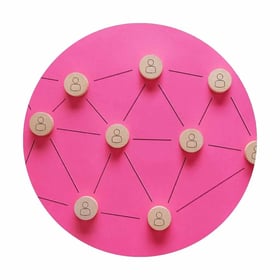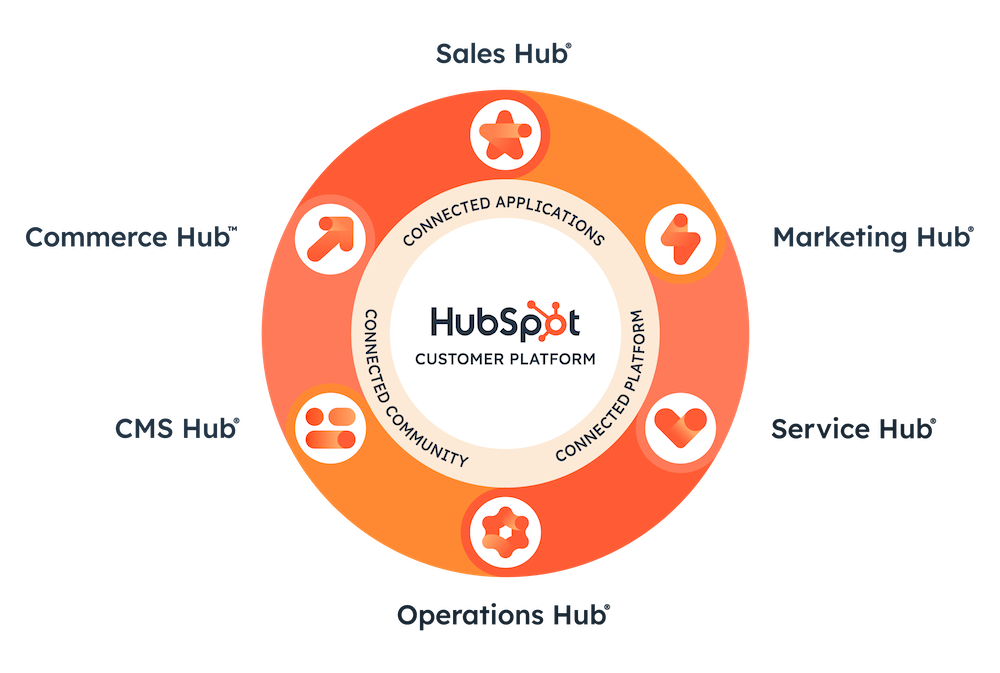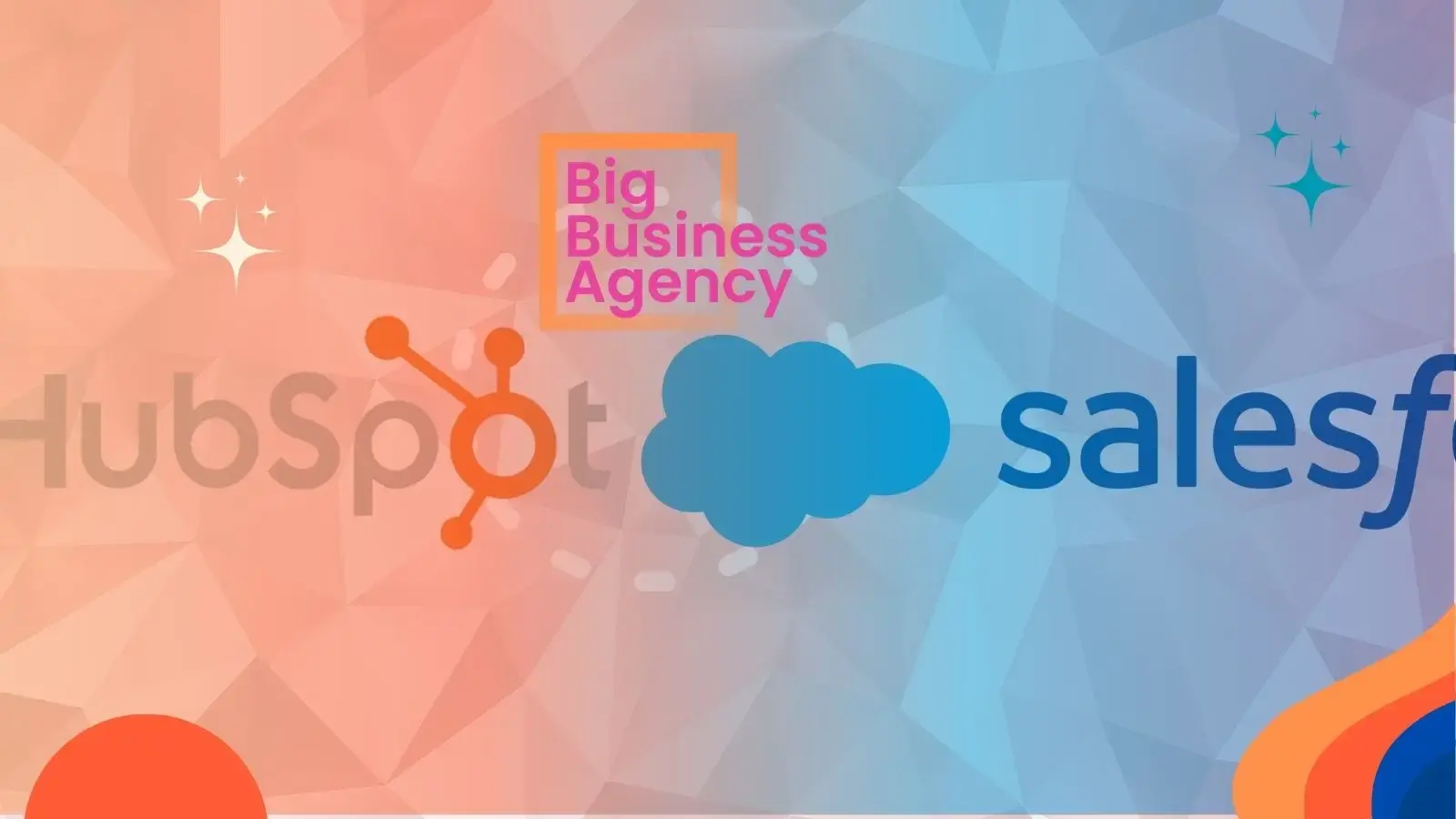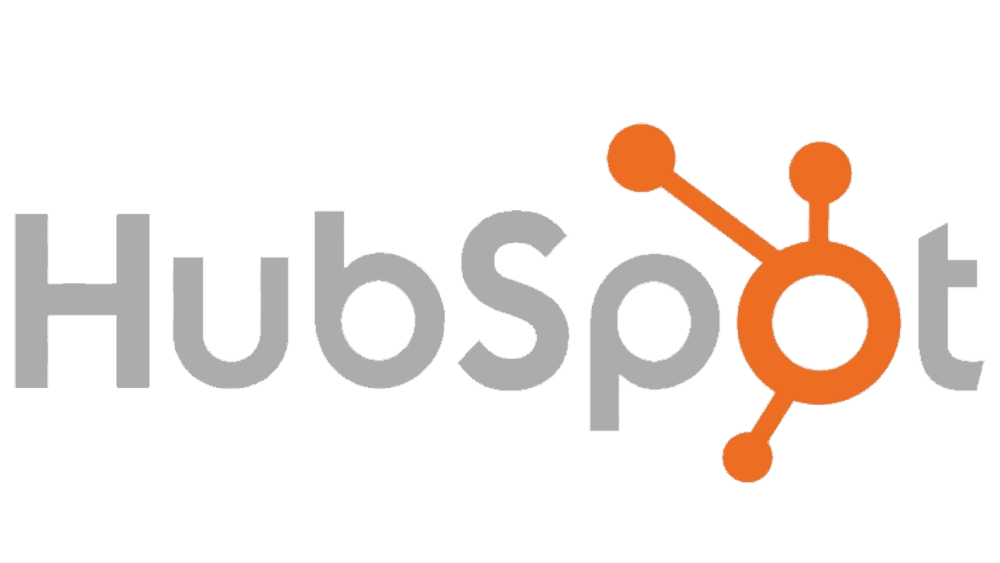A HubSpot and Salesforce Comparison in 2025
HubSpot and Salesforce are like the dynamic duo of sales and marketing CRMs.

McKinsey tells us many companies aren't yet reaping the benefits of technology and CRMs aren't just for giant companies with the resources to scrub databases chock full of hundreds of thousands of customers!
CRM simply involves having a few theories about customer segments and a variety of marketing campaigns to test these theories - t's not really about focusing on technology.
Therefore, "a company's first CRM customer database need only be big and accurate enough to support well-thought-out, statistically relevant test campaigns," the report concludes.
 According to this definition, even a small company in an emerging market can swiftly assemble a customer database and experiment with specific sales, customer service and marketing activities.
According to this definition, even a small company in an emerging market can swiftly assemble a customer database and experiment with specific sales, customer service and marketing activities.
So, what's their conclusion?
McKinsey states businesses that pilot CRM in "do it now, fix it later" campaigns enjoy growing market shares those that don't risk losing customers.
A CRM strategy equips sales, customer service and marketing teams with critical insights into customer behaviour and purchasing preferences, empowering them to craft more effective engagement strategies that boost revenue growth as well as keeping track of communications with customers. Your CRM is your single source of truth when it comes to your customer contacts.
![]()
Consider how your business can benefit most from a CRM, which will likely be a focus on sales.
Sales and marketing automation and AI-enabled tools mean that your CRM is more important than ever to efficiently grow your business.
 Most CRM software should be an integrated suite of applications, typically cloud applications like HubSpot CRM (Marketing, Sales and Service Hubs), that collects and stores leads, prospects and customer data.
Most CRM software should be an integrated suite of applications, typically cloud applications like HubSpot CRM (Marketing, Sales and Service Hubs), that collects and stores leads, prospects and customer data.
It provides a single centralised customer platform for sales teams to manage customer interactions and prioritise activities so that no customer feels ignored, which boosts customer experience and satisfaction rates.
CRM software is vital for sales reps in scaling businesses, going beyond just managing contacts. When utilised to its full potential, CRM empowers sales reps to dedicate more time to engaging with customers and prospects.
This increased customer interaction leads to more closed deals and fosters greater customer loyalty. Companies of all sizes will benefit from a fully integrated, cross-functional CRM solution like HubSpot.
A CRM system, like HubSpot's, enhances the capabilities of customer service teams by centralising essential customer data.
This integration provides a complete view of all interactions, enabling efficient issue resolution and delivering personalised support with assured confidence and precision.
CRM enhances communication between customer service teams and customers, ensuring that every interaction is meticulously documented and readily accessible for future reference.
In the B2B space, the industries that have embraced CRM use are largely Services, Manufacturing, Finance and IT firms, as illustrated by the chart below.
The companies that gain the most from leveraging a CRM are those navigating more complex sales cycles, managing extensive customer databases, and prioritising robust customer relationships. See the chart below for more information.
CRM usage by Industry
.webp?width=580&height=580&name=2%20(20).webp)
If your company is struggling to manage the influx of business, it may be the perfect moment to invest in a comprehensive CRM solution. A CRM system can efficiently streamline, analyse, and prioritise your sales leads, empowering your sales team to concentrate on high-potential opportunities and deliver timely, precise customer responses.
Furthermore, your customer service team will be equipped with all the necessary information to ensure customer satisfaction and effectively execute upselling and cross-selling strategies.
If you're noticing a decline in customer retention or have a low net promoter score, it might be time to consider investing in a CRM tool for your service team. By providing a unified view of your customers, your reps can offer exceptional service and support.
Your CRM should also include features such as digital assistants/chatbots for handling common queries, knowledge management tools for assisting agents, and a range of digital customer service options like live chat and video chat for customer interaction.
Incomplete and inaccurate data can present substantial obstacles for brands. Robust CRM solutions adeptly integrate second and third-party account and contact information into your CRM system, automatically populating missing details and intelligently removing duplicates.
You don't want your top customers to feel undervalued, and identifying them can be challenging. A reliable CRM tool can help pinpoint these valuable customers so that every team member interacting with them can show appreciation, offer tailored incentives, and cultivate their loyalty for long-term success.
If your reports are still being generated by downloading data into spreadsheets, it can lead to inefficiencies and errors, disrupting effective planning and forecasting.
This diverts valuable time from your sales team's core mission - selling. A dependable CRM system centralises data in a single, easily accessible location, streamlining the creation of precise, real-time reports and forecasts.
CRM solutions are pivotal in tracking business contacts, empowering your teams to tailor their communications effectively.
Advanced CRM tools elevate account and contact data by seamlessly integrating third-party information, guaranteeing that all details remain up-to-date and comprehensive.
Consequently, if a contact transitions to a new role, your sales, service, and marketing teams are promptly notified, allowing them to cultivate and fortify these essential relationships with confidence and precision.
HubSpot's customer platform, driven by HubSpot Smart CRM, seamlessly integrates your customer data, streamlines team collaboration, and optimises your technology stack for accelerated outcomes.
HubSpot's Smart CRM is intricately linked to all of HubSpot's core products, empowering you to deliver personalised sales, customer service and marketing experiences. Lets take a closer look at the winning features of HubSpot;

HubSpot's innovative product development approach combines key elements of lead, prospect and customer experience management - including content, messaging, automation, data, and reporting - into a single customer platform designed to scale with your business.
Each HubSpot product is powerful on its own, but the real magic happens when you use them together.
HubSpot CRM platform offers an integrated suite of solutions for sales, customer service, marketing and content management.
Imagine your whole front office on one, unified customer platform!

CRM software is one of the most effective tools for your salespeople. Beyond merely managing contacts, a fully leveraged CRM empowers sales reps to dedicate more time to engaging with both current and prospective customers.
This increased interaction not only leads to closing more deals but also fosters enduring customer loyalty. One of the best on the market is HubSpot, taking out the first place in CRM awards, year after year!
Sales Hub knocked Salesforce off the top spot and took first place for Sales Technology in the 2024 G2 Software Awards! Marketing Hub also won first place!
With its relentless flow of product updates and feature releases, HubSpot can easily claim to be one of the most powerful CRMs, but more importantly, it is widely acknowledged as one of the most user-friendly CRMs in the market.
That's an important point, as user adoption will make or break any CRM initiative.
Sales Hub is perfect for rising teams, offering four editions to support those starting or experiencing rapid growth. You can get started with Sales Hub for free!
Implementing HubSpot can help streamline operations, enhance customer engagement, and boost business growth by offering a unified platform for all your Sales, Marketing, Customer Service, and Support requirements.
HubSpot has a 43% lower cost of ownership than Salesforce, making it a fantastic option for sales, customer service and marketing teams.

FAQs- your questions answered!
Yes!
A CRM helps businesses streamline sales processes, track leads, and follow up with potential customers more effectively.
It provides insights that help sales teams close deals faster.
A CRM helps customer service teams by providing a centralised view of customer interactions, allowing agents to quickly access past conversations, purchase history, and support tickets.
This leads to faster response times, more personalised support, and improved customer satisfaction.
HubSpot also include automated ticketing and chatbots to enhance service efficiency.
Through the automation of repetitive tasks, minimisation of manual data entry, and seamless integration with other tools, a CRM optimises time management and empowers teams to concentrate on strategic priorities.
Contemporary CRMs like HubSpot seamlessly integrate with email platforms, accounting software, customer support tools, and more, ensuring efficient and streamlined operations.
The cost of a CRM platform varies based on the features you require.
Many CRMs provide competitively priced plans, and the return on investment frequently surpasses the initial expenditure by enhancing sales and operational efficiency.
HubSpot implementation is remarkably swift, taking weeks rather than months, unlike Salesforce.
Once implemented, HubSpot eliminates the need for costly technical resources for custom report creation, as these reports are a standard feature of HubSpot CRM.
The best CRM is the one your team will actually use!
A CRM that is intuitive and user-friendly should be a priority in your selection process. Additionally, consider factors such as your industry, the scale of your business, and your specific needs.
HubSpot is the number one choice for B2B firms, winning multiple awards year after year for their world class software.
Other options include Zoho CRM, and Microsoft Dynamics and Salesforce.
It is crucial to assess various options and select one that aligns seamlessly with your strategic objectives.

HubSpot and Salesforce are like the dynamic duo of sales and marketing CRMs.

Why consider HubSpot? Why on earth should you even consider the HubSpot customer Platform for your business? CRMs frustrate salespeople. For those of...

Is Salesforce CPQ disappearing? If you’re a business still relying on it - or thinking about starting - you might want to hit pause. Salesforce is...